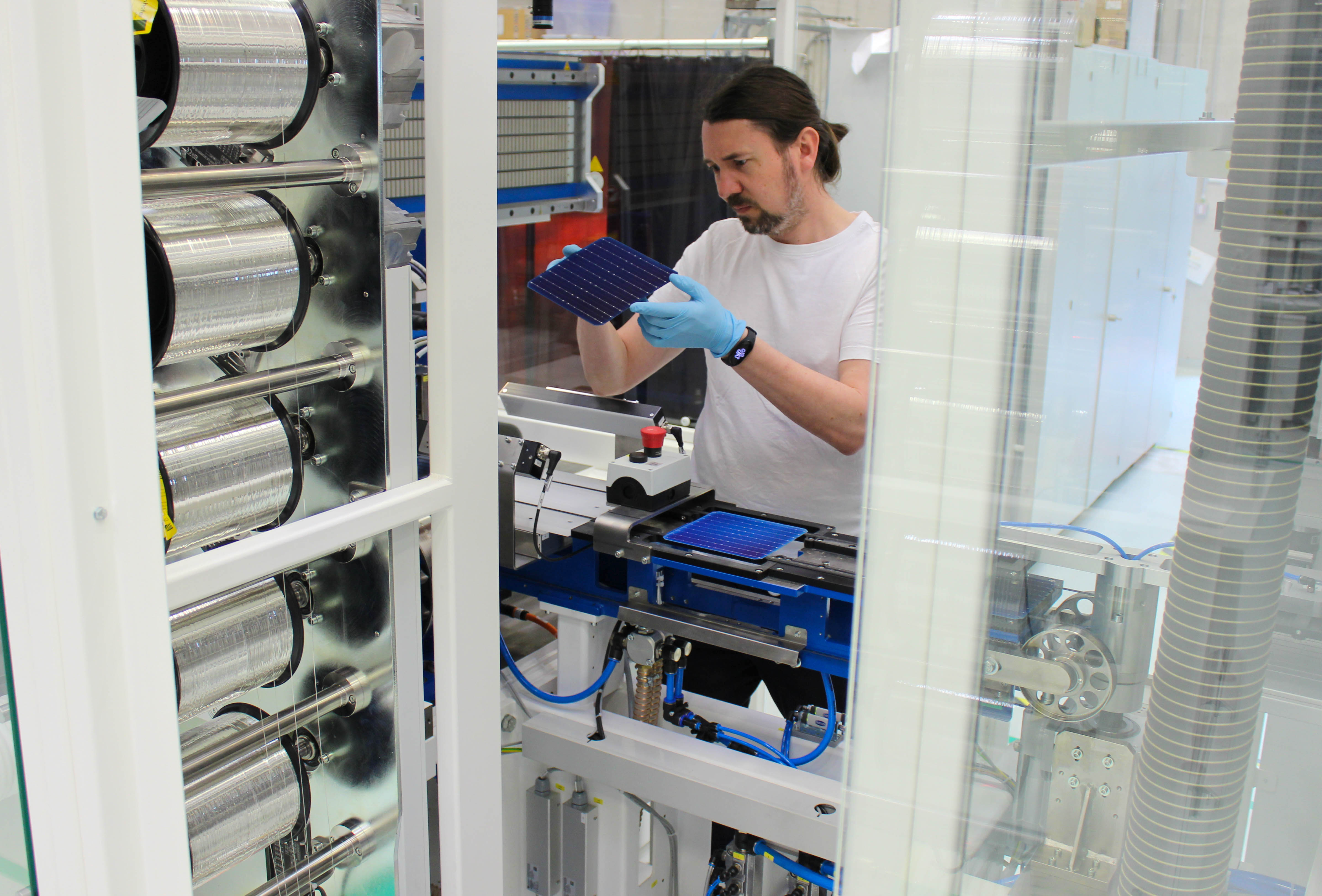With the unique combination of methods from materials science, component and module testing, and modeling, partners and customers receive comprehensive and well-founded support for the development of solar modules and their components from a single source.
Our motivation is to evaluate solar modules with respect to all reliability aspects and to further develop technological processes and materials.
We offer:
- process, material and data analytics
- electrical interconnection technologies
- Characterization and targeted accelerated aging of PV modules, components and materials
- mission profile-oriented optimization of materials and PV module concepts
- damage analysis diagnostics from macro- to microstructure with precise defect localization
 Fraunhofer Center for Silicon Photovoltaics CSP
Fraunhofer Center for Silicon Photovoltaics CSP